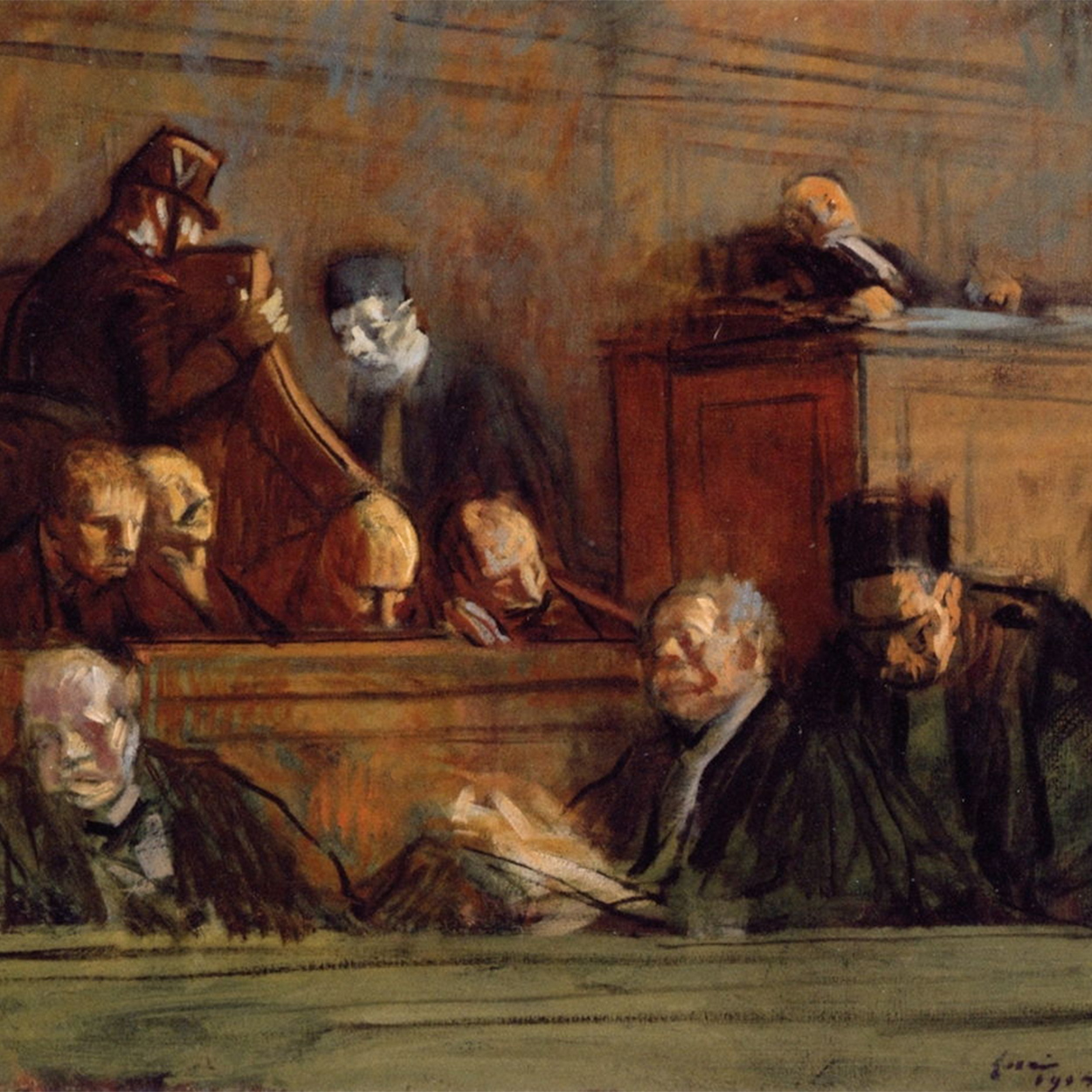An article by Bethany Brady Spalding and McArthur Krishna published earlier this week encouraged more appreciation of the distinctive Latter-day Saint teaching about Heavenly Mother. It was respectful, joyful, and faithful on a topic that’s become unfortunately fraught. We relished many things they said, and were we in a ward together, no doubt we would love sitting with these remarkable women and feeling a common love of this gospel. We also share the joy they speak of that:
In addition to a Father and a Brother—we have a Mother! If you don’t feel that yet, pause … get still. Tune in. How do you feel? Doesn’t that reality just make your heart dance?
We also feel a deep sense of urgency and importance in understanding our roles as women in the eternal plan. This doctrine does add to that—as we seek to “rise to our full stature” as President Russell Nelson encouraged years ago. More recently, he asked sisters in the Church to be unashamed in our roles as “society’s guardians of morality,” warning that “if this world loses the moral rectitude of its women, the world will never recover.”
To do this, it’s important to know who we are, our purpose, and our potential—especially if we are to help foster “healthy women, thriving couples, and strong families,” as McArthur and Bethany emphasized. They also said:
Let’s not forget that The Family: A Proclamation to the World states, “Each [person] is a beloved spirit son or daughter of heavenly parents, and, as such, each has a divine nature and destiny.”
We appreciate their attention to the simple truths taught so clearly in The Family: A Proclamation to the World about family as the pattern for heaven. Surely anything that helps us live in a way that honors God’s pattern for families ought to be welcomed as additional strength for the difficult days facing us now.
We valued Bethany and McArthur’s acknowledgment, as well, that “Some cultures teach that women are less than men. Some cultures accept domestic violence. Some cultures don’t encourage men and women to be united and work together to support their families.” In some of the NGO work one of us has done at the United Nations, we can attest to the desperate need for these reminders and the unique blessing this teaching can be among these brothers and sisters scattered around the world. How radically valuable this doctrine of loving, united Heavenly Parents can be, perhaps especially where women are not feeling valued!
In sum, this was a wonderful contribution, and there’s much to cherish. Like Mary, the mother of Jesus, and many other women we know, our celebration of the knowledge of Heavenly Mother has largely been something private—something that we “ponder in our hearts.” But within this more public discussion that is happening, there have been some lingering questions for us and other readers. Some of these are focused on what was said in the conversation, and others arise from what went unsaid. Certainly, not everything can be expected to be raised and addressed in a single article, which is why we wanted to take this opportunity to highlight some additional areas worth exploring. Each of these is offered in hopes of adding our voices to the broader conversation being encouraged.
1. In what ways can we better keep Christ at the center of all this?
As the most important question, we’ll say the most about this one. What we focus on expands, and what we pay attention to grows—something true of all domains of life. So, naturally, if we are to draw more emphasis to Heavenly Mother, we risk the possibility of less emphasis on both our Eternal Father and his saving Son—potentially obscuring our worship of Christ. The authors are not naive to this, nor are they unconcerned. Yet while the danger of elevating “gospel hobbies” also came up in the discussion, their video and discussion left some of us feeling that Christ was tertiary and not being prioritized enough as the crucial center of our devotion. For instance, this paragraph in the essay:
None of this replaces Jesus, who, as the Savior of the World, is playing a role no one else can. But in our experience, women wrestling with mental health, personal worth, feeling overwhelmed, feeling consumed by their many demanding roles, feeling alienated—all have told us how much this additional truth has helped them receive even more of the purpose and power available in the gospel of Christ.
Although expressing beautiful sentiments, the overall takeaway could be read as, “Yes, Jesus has an important role to play, but when he is not enough, there is another way for women to find some deeper support and comfort.” In a world so effective in drawing our hearts away from true worship of the almighty, it can’t be said enough that anything that leads us to look for comfort, direction, and deliverance in something other than Him—and only Him—can (potentially) create an imbalance. This is not a minor point, but the first of the mighty Old Testament commandments that we are to have “no other Gods before Him”—as well as the “first and great commandment” reiterated by Jesus in the New Testament, namely to “Love the Lord your God with all your heart and with all your soul and with all your mind.”
It’s so important that in everything we do, we are leading people to Christ. He is our advocate. He will save, redeem, guide, teach, comfort us, and so much more. Given that, we admit feeling uncomfortable with any message suggesting or insinuating that Heavenly Mother is somehow performing those roles—or should be.
Christ is ultimately who we go to the Father through. This is not a “go ask Mom since she’s more lenient and understanding than Dad” scenario. God our Father can and does love us perfectly. And a heightened focus on Heavenly Mother doctrine could become a concern if it puts limits on our Heavenly Father’s own love and abilities—and the Bread and Water of Life he provided to the world in his Son.
This speaks to the totality of Christ’s atoning mission and purpose as well, which can give us greater confidence as we appreciate its infinite and eternal scope. “My grace is sufficient,” the Lord reassures repeatedly throughout scripture. That’s precisely why we get uncomfortable with the idea that the comfort and sense of purpose or identity women most need can only really come if we are connecting with Heavenly Mother. We’ve been entrusted with this precious knowledge of her, but Heavenly Father has been absolutely specific regarding whom we should worship and how.
Is it possible to have an awareness and appreciation of Heavenly Mother, while keeping our focus on Christ? Surely it is. And yet even at our best, we mortals are distracted easily—with our attentions and loyalties subject to many surrounding influences. That’s partly why our worship of God, the Father through the Son, will likely take a lifetime to do well—no doubt, even more. Could this be why we’re encouraged to place exclusive priority on the Father and Son—including all our hearts, minds, and souls?
We see God’s invitations in this matter as loving permission to focus, not a dismissal of the value of any other holy being. Learning to cultivate a relationship and worship Him in a world that constantly competes for my attention seems to be what our God wants most. And the feelings that accompany nurture, compassion, correction, understanding, empathy, connection, direction, forgiveness, and redemption can all be achieved beautifully and completely in this central worship.
These are serious matters—and not cautions that reflect mere defensiveness or fear, and certainly not accusation. Rather, this feels like an awareness to keep front and center, so we can be vigilant as the world tugs and pulls with so many options that feel exciting, but ultimately end up as alternatives to the “one true God.”
2. How can we ensure covenants likewise remain central for women grappling for purpose and meaning?
Temple instruction, ordinances, and blessings inform our Latter-day Saint sense of empowerment as both men and women. There, we learn in stunning detail about our divine, eternal potential. We are shown what God wants to gift us, the powers he wants to extend to us all, and our place and possibilities in the eternities. In sacred silence and stillness, the Spirit teaches and reminds us who we are, what we mean in a fallen world, and how deeply we matter to our eternal families.
The covenant path connected with these sacred ordinances is a saving grace through the mists of darkness. As the world gets even darker around us, prophets continually invite our attention back to what we can find in these holy houses, and the “power of godliness” available in exalting ordinances, especially as we “cleave to your covenants.”
It’s not possible to address everything in one article. But as we seek to keep ourselves aligned with prophetic priorities, we noticed these covenants and the ordinances of the temple didn’t come up in the discussion. In what ways can we make the temple a centerpiece of learning about our maternal/female power?
In our experience, nothing teaches us more, especially as women, about the powerful endowments we have and are promised, than the temple. It is the temple that President Nelson sent us to in his plea with us to learn more about ourselves. And if we enter humbly and ready to learn, an hour there will do more than anything else.
3. How do we best help a woman wounded by men in her life?
There are unquestionably many women suffering the wounds of fathers, husbands, and other past relationships. It’s not hard to understand how women who have felt neglected or hurt by men in their life can struggle to relate to our Eternal Father or the Savior Himself. What is the best answer for a woman experiencing such a critical estrangement?
Is it to keep seeking for an improved relationship with Heavenly Father—and to not give up on that? Or is it to expand her focus to other kinds of comfort, including perhaps from a connection with Heavenly Mother?
A similar question can be asked about a woman who feels emotionally distant or estranged from her earthly mother. What’s the best path of healing for her—connecting more with her Heavenly Mother or her Heavenly Father? Although we could say “both,” practically speaking, one will usually draw more of our focus and potentially result in a bifurcation of worship.
Compassion and understanding are obviously not gendered characteristics. As we continue practicing trust in our worship of Him, we can be reassured by the promise of healing possible in all of these relationships.
4. To what degree are feminist priorities showing up or implicit in this conversation?
It feels important to acknowledge that a significant part of the online excitement for the divine feminine in the larger world as a whole has been connected to a new wave of feminist mobilization. Although Bethany and McArthur are attempting to rise above that trend, those social underpinnings are too important to ignore. The reality is that for so many saturated in this world of social justice and demands for equality, it’s perhaps difficult to even fathom a male God that we can rely on. One question we would like to see more exploration about is how we can keep from making Heavenly Mother a vehicle for cultural and social activism.
Even with all the advancements made for women since the days of suffragettes, we still so often struggle to relate to men as equals. Many of us women also carry an enduring tendency to collectively and consistently speak of ourselves as victimized or dominated in some way by men in the world. (And yes, sometimes that’s exactly what is happening.) Alternatively, we might speak in the other extreme, in ways that suggest we are “better than” and don’t need (or want) men around (just watch new Disney movies for abundant examples).
We have observed women, especially those emerging into adulthood, experiencing tremendous pressure to criticize men (compounded by the real-life human struggles of men in their lives). It seems to us that so much of the answer is found in the larger beauties of complementarity of male/female roles, which is something we appreciate that Bethany and McArthur emphasized. Done right, this focus can surely assuage those cultural conflicts rather than exacerbate them. Heavenly Mother’s glory is not that she merely exists, but manifest in her partnership and companionship with the Father. It is an exquisite pattern for our highest, holiest familial aspirations.
5. Celebrate, how?
As a final wondering, there was a repeated call in the essay to celebrate the doctrine of Heavenly Mother and apply it more fully in our lives, but little more than a few details demonstrating what that looks like. We understand and agree that it can be valuable to underscore more general principles while trusting people to “govern themselves.” However, without more specificity of language and illustration regarding this celebration or application, we are left with a real vacuum of intent.
For instance, what kind of activities does a lesson or Young Women camp do to celebrate Heavenly Mother? And without more clarity, what is the limiting principle that would stop people newly excited about this doctrine from directly worshiping our Mother, which we have been specifically counseled against? What is meant by suggesting this doctrine be “incorporated into sacred language”—do you mean prayer?
McArthur once wrote in the past, “I get asked a lot about the how of building a relationship with our Heavenly Mother”—this, as part of a call to submissions over a year ago (and updated more recently). It’s difficult to understand the reticence to speak of applications if this new project seems aimed at exactly that. More to the point, it’s hard for us to imagine some of this real-life application not beginning to stretch the lines we’ve been given in prophetic counsel.
Perhaps what we’re asking is that we not be naive about the potential way excesses can lead women away. Even with pure motives, a combination of generalized excitement—and few specifics—could potentially be filled with practices and preaching inconsistent with the restored gospel. This may be especially true of women feeling particularly vulnerable—e.g., “wrestling with mental health, personal worth, feeling overwhelmed, feeling consumed by their many demanding roles, feeling alienated.”
It was a bit surprising for us to hear the authors downplay the possibility of women being led away by such extremes. We definitely have seen this play out firsthand—and most women actively involved in the Church that we speak with have as well. Women like us would, we think, be more reassured if that possibility were something we were paying more careful attention to.
These are some of our honest questions. Although we haven’t spoken as openly and publicly about these beautiful realities around Heavenly Mother, we acknowledge these realities in private conversations and have loved knowing she is there and can’t wait to meet her again. Like other sacred matters, we must continue to seek higher wisdom in terms of what ought to be publicly discussed and promoted, and what ought to be “kept” and “pondered in our hearts”?
In her place alongside our Heavenly Father, we are comforted to know how he feels about women, motherhood, and by extension and very personally, us. And our worship of her is completed in our worship of him, through Christ. If we keep our covenant boundaries woven tightly around us, our feelings for a mother in heaven will be joyfully enwrapped in our worship of Father and Son as was established before the foundation of the world.
















